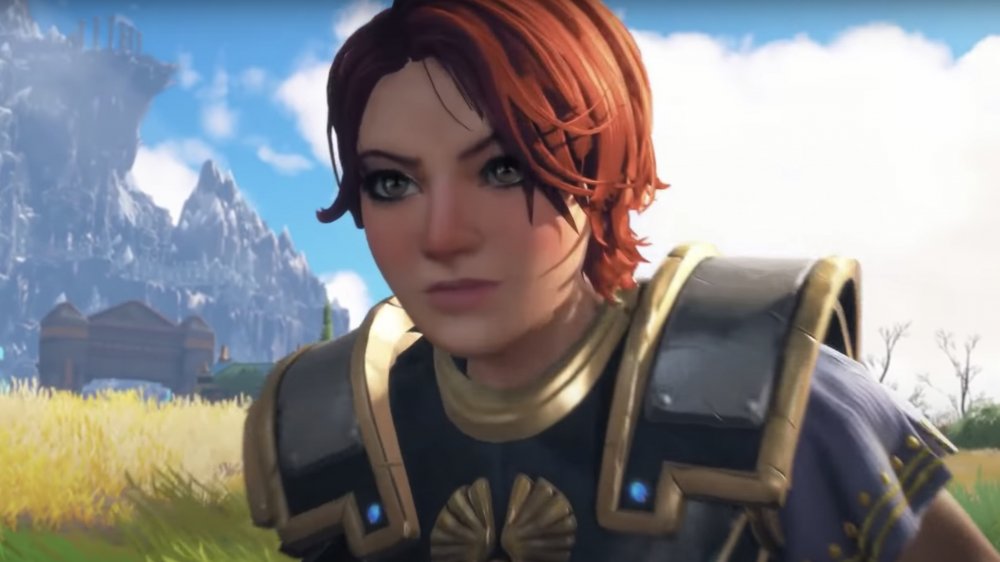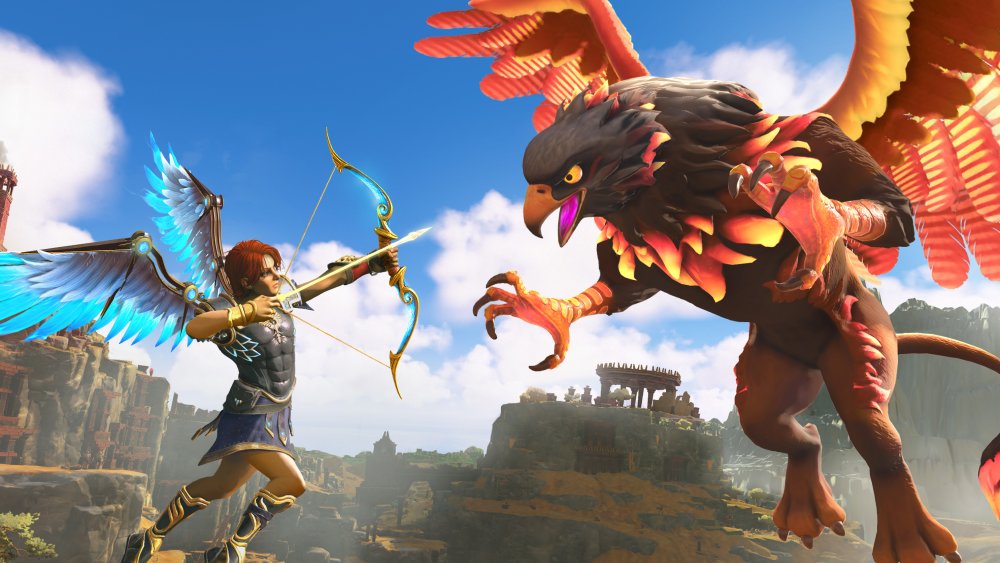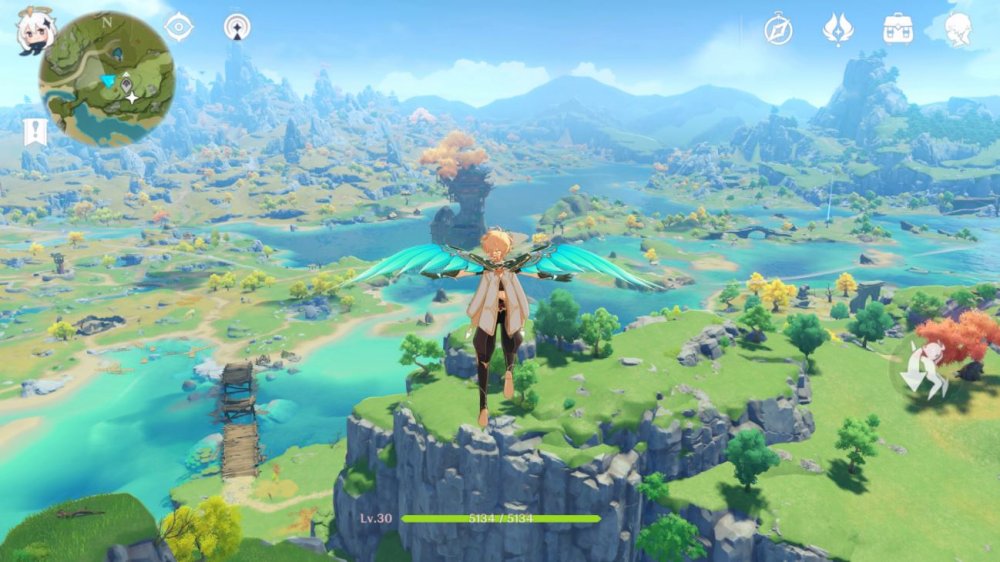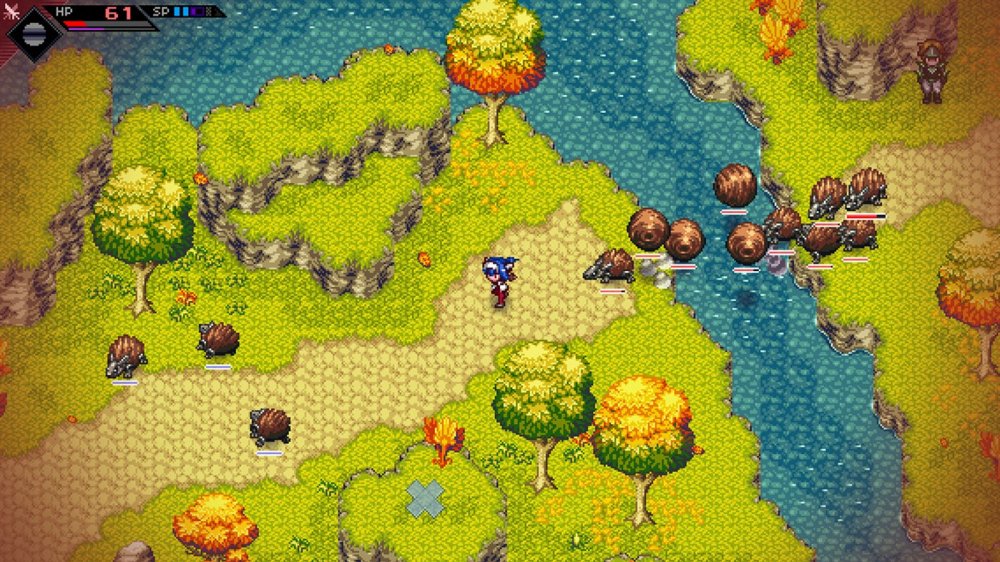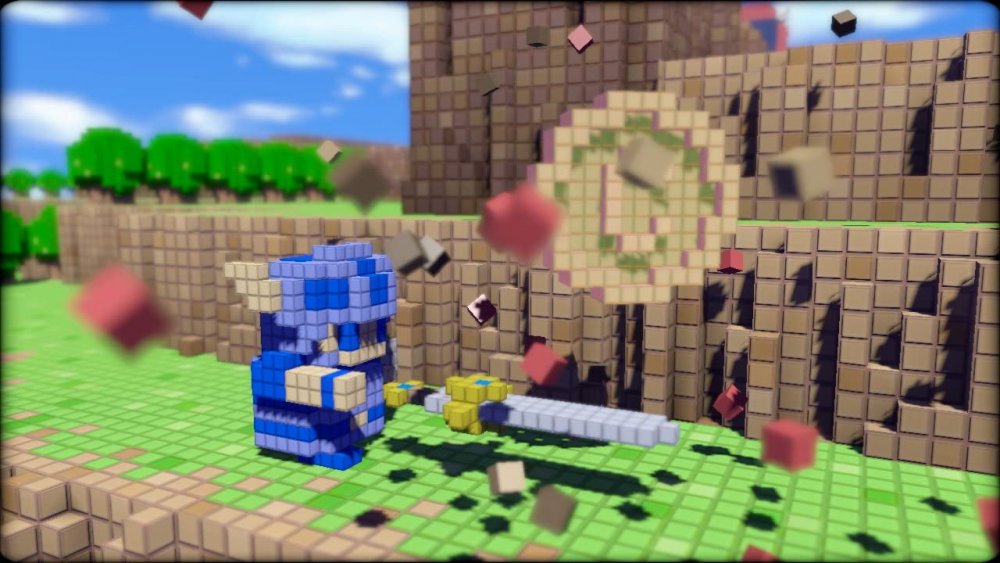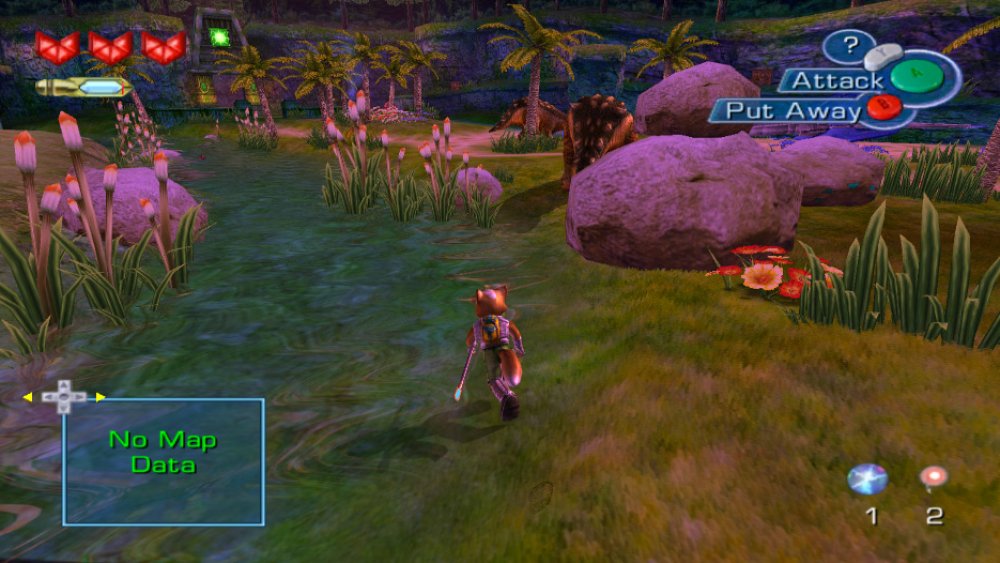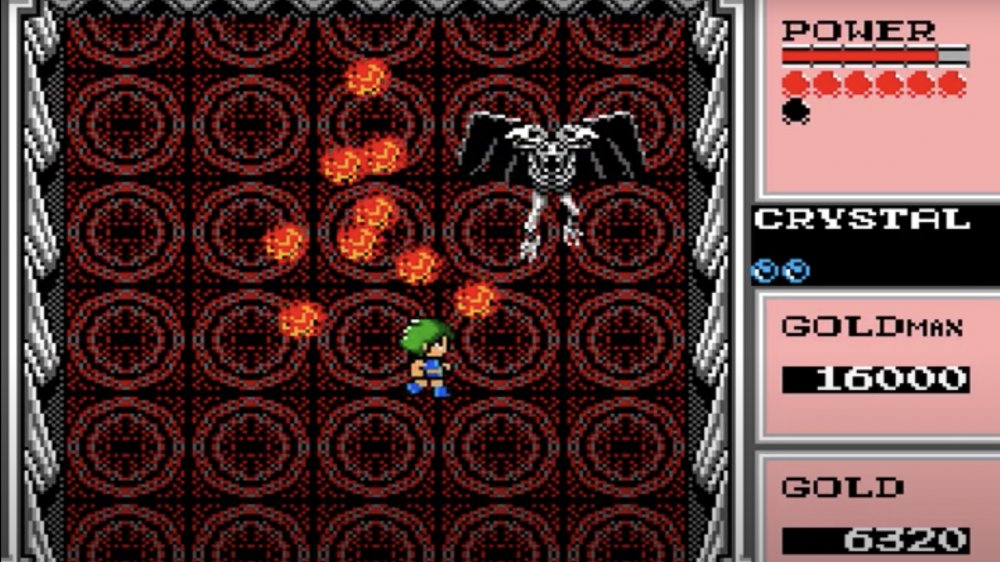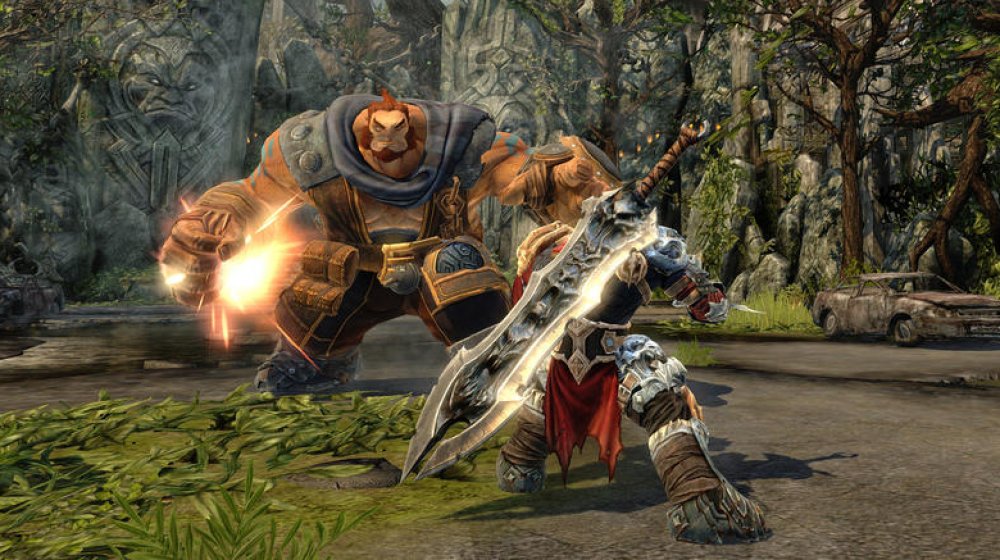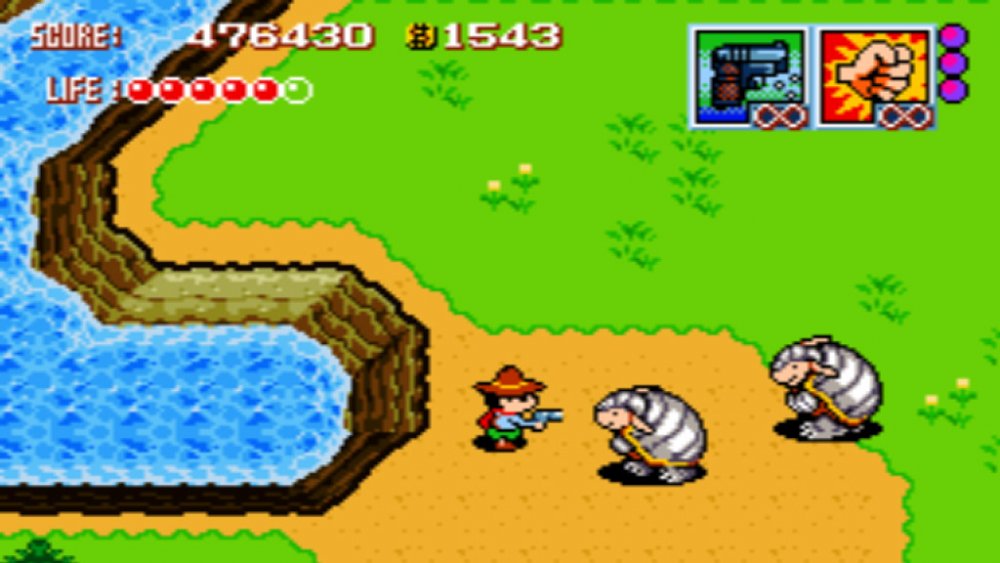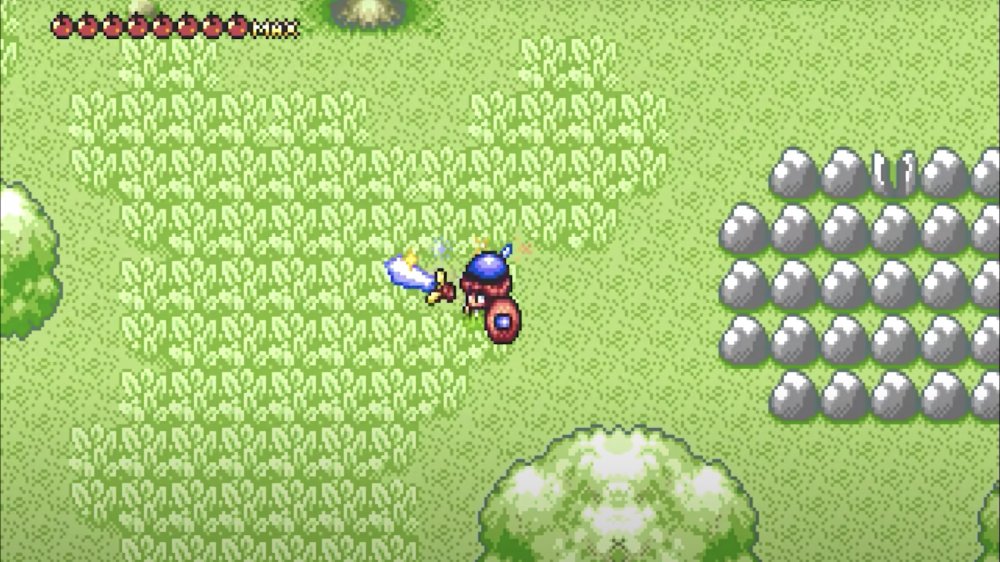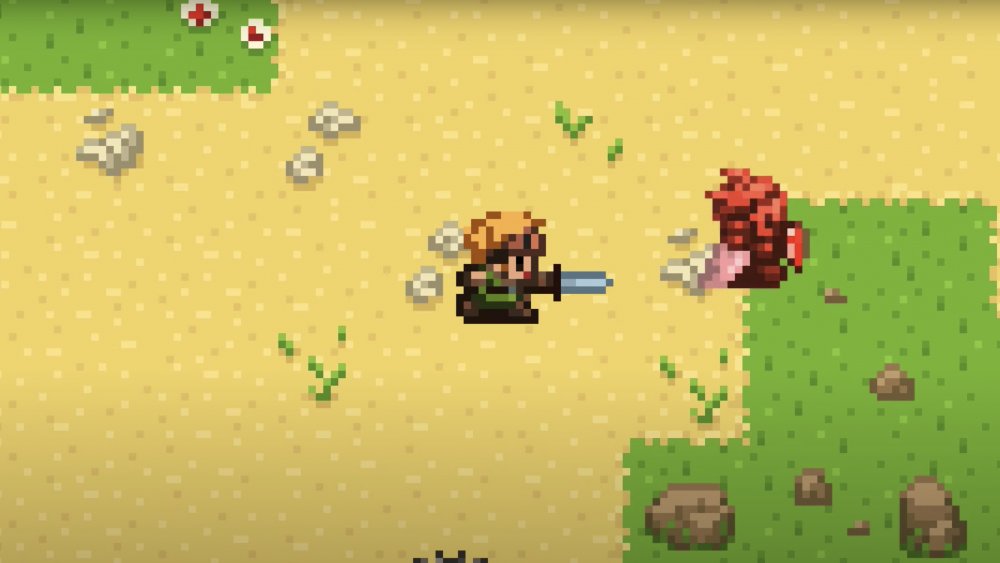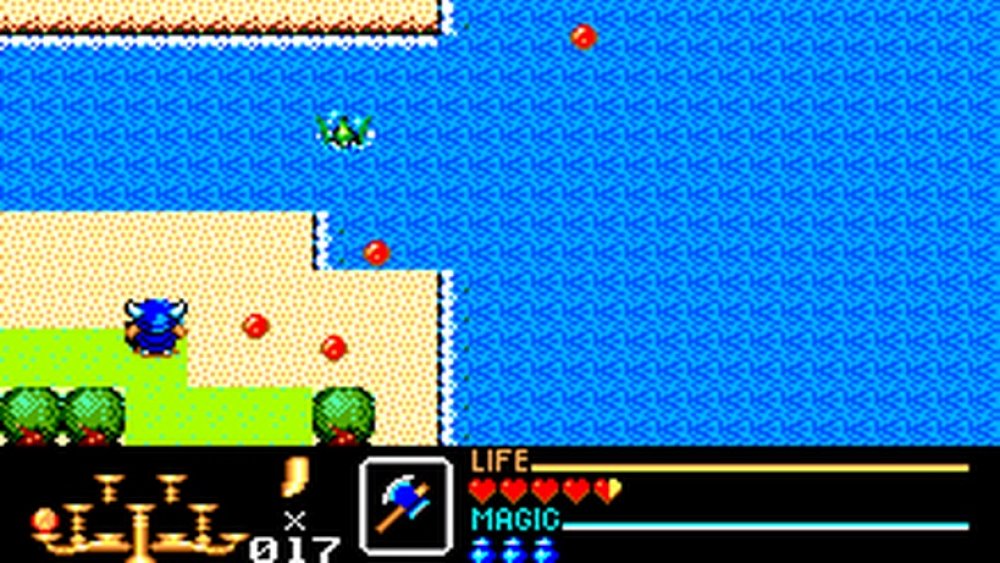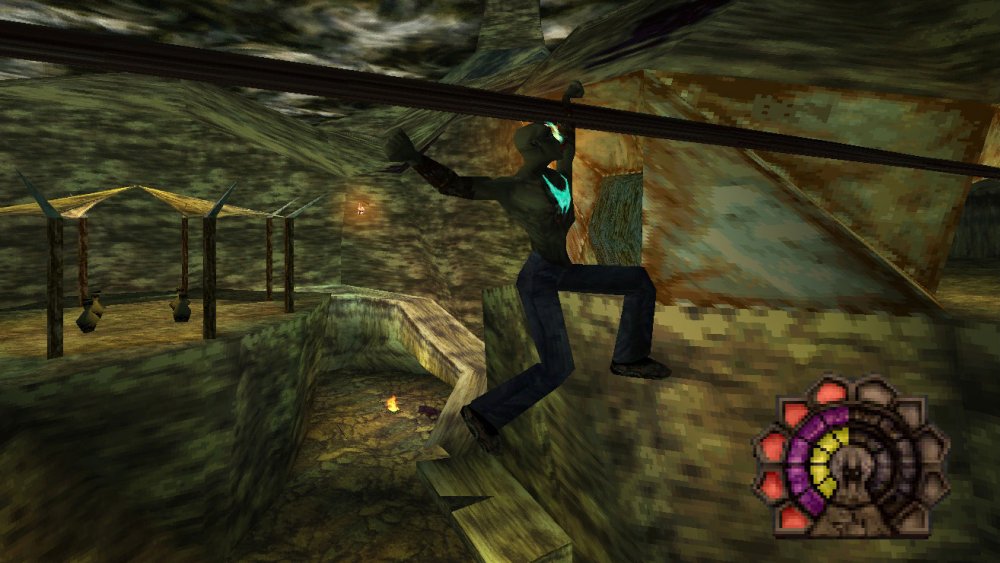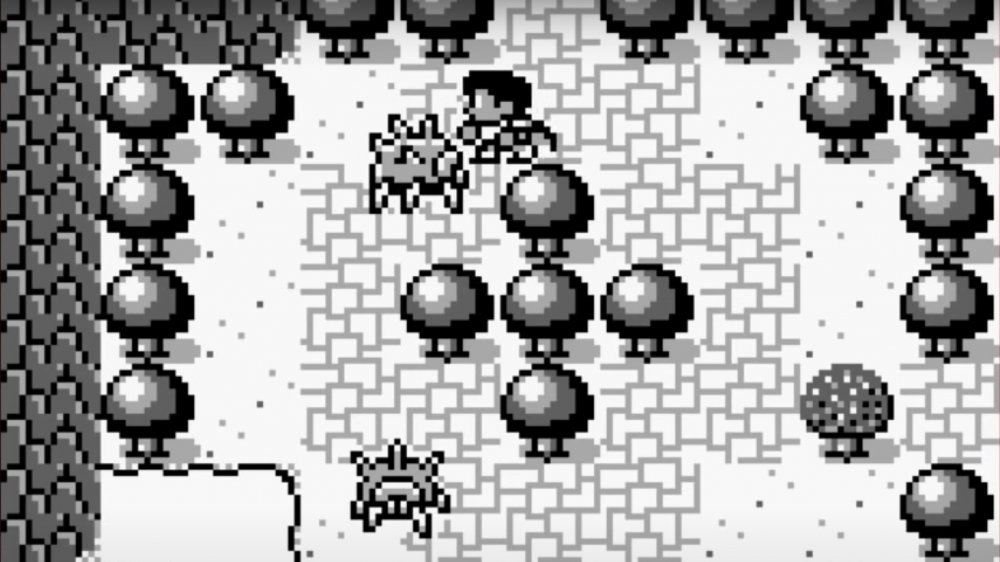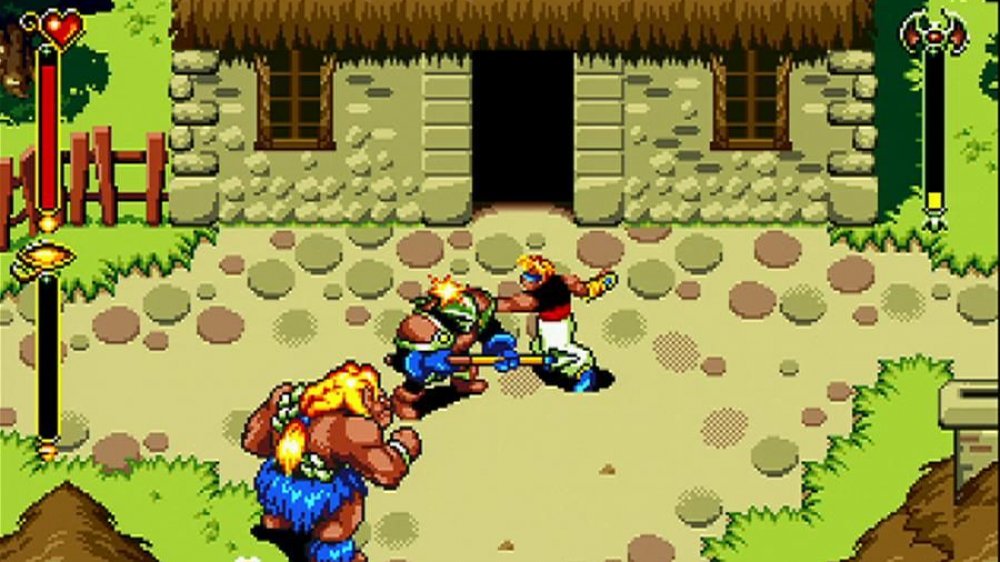Zelda Clones That Caused A Serious Uproar
The great playwright Oscar Wilde said, "Imitation is the sincerest form of flattery that mediocrity can pay to greatness." And for a franchise as legendary as The Legend of Zelda, imitation is to be expected. After all, if you're going to look for inspiration for your game, there may not be a better formula to borrow than the one that built the Zelda franchise into the gaming titan it is today. Combining vast, open-world exploration and mysterious dungeons with exciting combat and challenging puzzles, the Zelda blueprint is time-tested, and provides a path forward for developers who wish to make a name for themselves.
Indeed, the Zelda formula clearly works, which is why there exists an entire subgenre of clones clamoring for attention. Since the '80s, developers have glommed on to the Zelda formula in an attempt to appeal to that franchise's fan base. Sometimes, the clone actually holds its own. Other times, the imitation fails to impress. Some clones may appear to be complete knock-offs, while others do manage to bring genuine innovation to the table.
Whether you love them or hate them, these are some Zelda clones that caused a serious uproar.
Immortals: Fenyx Rising
Considering the monumental success of Breath of the Wild, it was inevitable that the imitators would come out to play. In Colin Campbell's report on Gods & Monsters for Polygon in 2019, he heavily emphasized how derivative it appeared, expressing how he was unsure whether what he saw was "a game demo or an act of grand larceny."
Fast forward a bit, and the game has been renamed Immortals: Fenyx Rising. But is it any less of a Zelda clone?
GamesBeat's Jeff Grubb had a similar reaction in his September 2020 article, stating, "[A]ll I could think of while playing is that this game is a whole lot like Zelda: Breath of the Wild." He then went on to list the many ways in which both games are analogous, including open-world structures, protagonists with telekinetic control, hidden challenge dungeons, crafting/cooking, and more. While Immortals: Fenyx Rising does little to hide its plagiaristic nature, Grubb did forgive the game, citing several key examples of significant games in gaming history that were also rip-offs, like Pong.
Despite the heavy influence, Immortals: Fenyx Rising remains a distinctly Ubisoft title, according to Grubb.
Genshin Impact
Of the Zelda clones, few have received as much backlash as Genshin Impact. Here is a game that got fans so riled up, one even went so far as to destroy his PS4 in protest. Other less-extreme protesters held up their Switch consoles and middle fingers during a gameplay demo at the ChinaJoy expo.
Much of this outrage was sparked by Sony's support of Genshin Impact after footage revealed it to bear a striking resemblance to Breath of the Wild. But more than just a lookalike, this game appeared to feature very similar mechanics and settings.
Reactions were clearly heated and volatile, though possibly unjustified. While there's no denying that certain elements were lifted straight out of Breath of the Wild, there are some key differences. IGN's Daniel Robson described Genshin Impact as a "Zelda clone that's not really a Zelda clone." For one, it tells an original story. There are around 30 characters you can choose from, in contrast to Zelda's sole playable protagonist. The game offers a fairly in-depth RPG system unlike Breath of the Wild. To top it all off, Genshin Impact's art style is a celebration of manga and anime. As CCN's Thomas Bardwell suggested, considering Breath of the Wild's success, a knock-off may not be a bad thing.
CrossCode
Sometimes a clone knows what it is and has no shame in it. Boldly sporting the term "Zelda-esque" even in its description on Nintendo's official game store, CrossCode makes no bones about being a Zelda clone. And in this case, the uproar is positive. Perhaps in its earnest embrace of the obvious influence, gamers are able to rejoice in this excellent Zelda-like.
CrossCode takes the Zelda formula and puts it in a future world. The protagonist is a mute gamer who is on a mission to recover her lost memories by playing through a fictional MMO within this game's universe. It of course brings all the staple Zelda elements together like dungeon exploration and puzzles. And rendered in stunning 16-bit imagery, it's easy to see the influence was handled well.
The game's reception has been quite positive, with an aggregate user rating almost on par with that of The Legend of Zelda. Having near-identical scores and a larger volume of reviews for CrossCode, it begs the question: which is better? Regardless, this game is proof that clones can in fact stand on their own.
3D Dot Game Heroes
At what point does an homage cross into infringement territory? This is exactly what Mark Methenitis of Engadget explored in response to the outcry of copyright infringement from gamers over 3D Dot Game Heroes. It's easy to see how such an issue could arise after hearing the music and looking at the environments, enemies, and gameplay. The overall premise is an ode to gaming of that era, so such comparisons could be a sign of a job well done.
Ultimately, Methenitis concluded that he personally saw no infringement on the part of 3D Dot Game Heroes. But this hasn't prevented others from viewing it as such.
In an article on Kotaku, Mike Fahey set out to see if 3D Dot Game Heroes could be "labeled a gimmicky Zelda clone." With so many fans claiming it was a PS3-exclusive Zelda knock-off, Fahey yielded to the notion that it was "derivative . . . but it's derivative done well." He did note that the gameplay somewhat suffered as a result of the game's attempt to emulate a bygone era of gaming. In the end, he left it up to audiences to decide whether it's just a tribute or a shameless copy.
Star Fox Adventures
When you think of Zelda clones, Star Fox is probably lightyears from your thoughts. But believe it or not, one of Nintendo's own franchises copied Zelda's homework for one of its titles. Star Fox Adventures is a notorious entry in the series that alienated many of its fans. Though it was initially well-received, as the years flew by the game failed to retain a positive image.
Not only did Star Fox Adventures mark the final partnership between Rare and Nintendo before the former jumped aboard the Microsoft ship, but it wasn't even originally a Star Fox title. This hurt the game's appeal with its core fan base. And one has to wonder if its Zelda-esque qualities did more harm than good.
In an interview with Nintendo Life, Phil Tossell, the game's lead software engineer, confessed that the team took inspiration from Ocarina of Time during the later development stages. Regarding its disappointing reception, he speculated that the game "borrowed a little too heavily from Zelda." On Reddit, several users echoed this sentiment, calling it an inferior Zelda knock-off.
Perhaps there's a lesson here: Leave the adventuring to Link and have Fox McCloud stick to piloting space ships.
Golvellius: The Valley of Doom
Remember the Master System? Many are familiar with this Sega Genesis predecessor, though it was greatly overshadowed by the giant that was the Nintendo Entertainment System. The Master System was the underdog in a battle that preceded the great console wars of the '90s. As such, Sega was bound to unleash its own version of The Legend of Zelda in a shameless attempt to compete against Nintendo.
That competition came in the form of Golvellius: The Valley of Doom, which released on the Master System in 1988.
More than just a knock-off, Golvellius took formulas from the two existing Zelda titles at the time and merged them into one game. The result was a mix of overhead and side-scrolling action. Like the first Zelda, the overhead sections had combat. But where Zelda 2 forced players to find their way through diverging paths in its side-scrolling dungeons, Golvellius progressed in a more traditional, linear fashion.
Golvellius never made much of a splash. As such, it managed to sneak by without offending too many Zelda diehards. In fact, USgamer's Jeremy Parish actually praised the game's atmosphere, graphics, and music, calling it "an ambitious and honestly sometimes incredible game."
Darksiders
Darksiders is a game that Destructoid's Jim Sterling claimed is actually superior to the Zelda series. However, even he had to admit that it "suffers from an intense case of plagiarism." And one that has deeply troubled its lead designer, Haydn Dalton.
In an interview with VideoGamer.com, Dalton expressed his chagrin over the comparison. Calling the association "frustrating," he went on to comment on how he felt this series was unfairly judged when there are many other games that borrow and combine elements from pre-existing titles. He also noted how Darksiders has been called "derivative," which he felt was unjustified. "We're trying to do something that we think is fun in a genre that I think is dying now. [...] It feels a little hurtful sometimes when people are hurting us for doing that," he explained.
Regardless of how the game's lead designer felt, it seems as though other members of the team have embraced the designation of Zelda rip-off. On the Darksiders' Facebook page, an image was posted that is a blatant nod to Skyward Sword. And while such was not explicitly stated, the post did call it "a tip of the hat to one of our favorite games."
Ganpuru: Gunman's Proof
Have you ever wondered what The Legend of Zelda would have been like if it took place in the Wild West? If so, Ganpuru: Gunman's Proof might offer some insight. Destructoid's Allistair Pinsof called it a "shameless A Link to the Past carbon copy," though it does have some notable qualities you won't find in the Zelda franchise.
Ganpuru: Gunman's Proof is not just a Zelda-like in a Wild West setting; it also involves aliens! In fact, you control the body of a farmhand who is possessed by one of these recently marooned extraterrestrials, which makes for some interesting NPC interactions. That seems to be where the fun ends, though. Like any true Zelda clone, Gunman's Proof has you exploring dungeons and uncovering key items vital to your progression. Unfortunately, with linear travel, an absence of puzzles, and simple boss battles, the dungeons are not well executed.
While the game falls short in a lot of ways (and appears to rip off Zelda to the point of lifting assets straight out of A Link to the Past), it does possess style. In his review, Pinsof praised the game's look and the imaginative world it occupies.
Crusader of Centy
In the United States, the Super Nintendo and Sega Genesis were once neck-and-neck in a console war that defined a generation. During that same era, however, the Mega Drive failed to keep up with the Super Famicom in Japan. A big reason why is because RPGs were huge in Japan, and the Mega Drive fell quite short in that department. The Super Famicom/Nintendo, on the other hand, was rife with RPGs. As such, Sega needed to shift strategies as a way to bolster sales in the region.
Though Sega did have a few RPGs of its own, the company needed something more — something to compete directly with one of Nintendo's flagship franchises. Enter Crusader of Centy, a Zelda clone on a mission to capture the Japanese RPG fan base.
As part of an initiative to bring more RPGs to the Mega Drive, Crusader of Centy was the first in a seven-title launch known as the "Mega Roleplaying Project." Norman Caruso, AKA The Gaming Historian, called it one of Sega's best. Visually, there's no denying the developers attempted to emulate A Link to the Past almost to a fault, though it does have some improvements. These enhancements include eight-directional movement, jumping, and an animal companion system.
Evoland
Evoland is an interesting case in the world of Zelda clones in that it's hard to write it off as another knock-off. Rather, it's more a celebration of video game history. Though it does begin with gameplay that is directly inspired by Zelda, it gradually evolves into several different types of games, borrowing from Final Fantasy and Diablo, as well.
Breaking the fourth wall, Evoland is a light-hearted exploration of the evolution of gaming where the world goes from black and white to color, to 3D, and beyond. Features that most gamers take for granted, like saving and purchasing items, must be unlocked. The mechanics change too, beginning with classic swordplay, then introducing a turn-based system, followed by Diablo-style combat.
In its short duration, Evoland fails to deliver a deep gameplay experience for any genre it emulates. David Klemke of The Refined Geek criticized this lack of depth but gave it credit for its overall presentation.
As far as Zelda clones go, this one gets a pass for its unique approach in presenting gamers with an interactive video game timeline. It may not be the most fun you'll have, but it certainly is clever.
Golden Axe Warrior
As one of Nintendo's greatest rivals in the '90s, it makes sense that Sega would a huge offender when it comes to Zelda rip-offs. In fact, Sega did it shamelessly, taking one of its beat 'em up franchises and forcing it into the Zelda mold. Golden Axe Warrior was released for the Master System in 1991, the year Sonic was already blazing trails on the far more successful Genesis. As such, this game never really had a chance to gain notoriety for its unabashed plagiarism.
Borrowing the top-down view, filling the game with dungeons, and throwing in similar objectives to the original Legend of Zelda, there's no denying what Sega was trying to do. To make this sub-series even more derivative, Ax Battler: A Legend of Golden Axe for the Game Gear copied Zelda 2 using a combination of overworld traveling and side-scrolling combat.
When looking at The Legend of Zelda and Golden Axe Warrior side-by-side, it's abundantly clear Sega took a page right out of Nintendo's playbook. A user on the Armageddon Games message board called it out as "the biggest ripoff [they] have EVER seen!" Take Golden Axe Warrior for a spin and there's no doubt your verdict for plagiarism will be "guilty."
Shadow Man
Sometimes a Zelda clone hides in plain sight, complete with the "Nintendo Seal of Quality." In this case, the Nintendo 64 once had Shadow Man sitting in the same section as Ocarina of Time and Majora's Mask. Based on a comic book series, Shadow Man puts the player in an open-world environment full of atmosphere and puzzle-solving beats, all of which quickly bring contemporary Zelda titles to mind.
Throughout the game, the titular hero traverses the regular world and the world of the dead. His abilities change depending on which side of mortality he occupies. Much like Ocarina of Time, your exploration is mostly limitless, with certain items unlocking areas that are otherwise restricted.
Even some key control schemes were stolen from Zelda. According to Matt Casamassina's review on IGN, the developers integrated a strafing and targeting button in response to the success of such a function in the 3D Zelda games. Though Casamassina ultimately gave Shadow Man a very high score of 9.1, he noted that the borrowed targeting system doesn't quite measure up to its Zelda counterpart. Shadow Man may be a good game, but it boldly ripped off Zelda on its own turf.
For the Frog the Bell Tolls
Kaeru no Tame ni Kane wa Naru, known as For the Frog the Bell Tolls in English, is a particularly interesting case when it comes to Zelda clones. Borrowing the overhead style, side-scrolling dungeons, and requisite captured-princess plot, this game clearly takes inspiration from the Nintendo classic. One thing sets it apart from other look-alikes though — this game actually served as the basis for the Game Boy classic Link's Awakening.
Even so, For the Frog the Bell Tolls features plenty of other notable novelties. For one, it takes a different approach to the damsel-in-distress archetype by putting the protagonist in direct competition with another prince to see who can save the princess first. Your character possesses the ability to transform into a snake and a frog, which plays an important role in game progression. Another highly unique quality is the combat system, which occurs without any input from the player. Victory is determined entirely by stats, so if you encounter an enemy more powerful than you, you might want to think twice before picking a fight.
This game tests your skills more with challenging platforms and puzzles than it does through its combat system. Though it never made it out of Japan, English fan translations of Kaeru no Tame ni Kane wa Naru are available.
Beyond Oasis
In the '90s, many families were either Sega households or Nintendo households. And of course, those Sega kids hungry for a game like Zelda had several options to satisfy the itch. One of those Zelda clones was Beyond Oasis, which happens to have a strong fan base.
Ron Duwell, a self-proclaimed "Nintendo kid," wrote about his experience with the game, where he credited its cult following to nostalgia. He asserted that there's no comparing Beyond Oasis to A Link to the Past, which he claimed is far superior. While the game has its obvious Zelda tropes, it differs in a distinctly Sega way, according to Duwell, with faster-paced arcade combat and a more restricted means of progression.
Mike Diver of Vice, who grew up in a Sega house and played Beyond Oasis as a kid, shared Duwell's opinion. The game has a fair amount of problems, which Diver wasn't shy to point out. But despite its flaws, he did still enjoy Beyond Oasis, and went so far as to call it "arguably, Sega's greatest 16-bit RPG."
If there's one takeaway from all of this, it's that Beyond Oasis is a solid Zelda clone, though its superiority may be slightly embellished by its fans.

